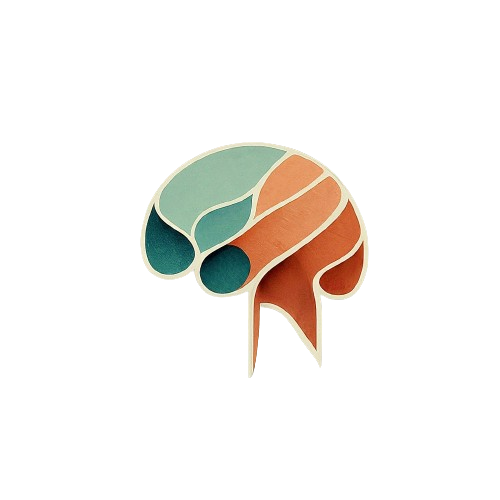In a world full of chaos and uncertainty, the human mind has an extraordinary ability to find order and meaning. But what happens when this ability goes into overdrive, leading us to see patterns and connections where none actually exist? This fascinating phenomenon is known as apophenia, and understanding it can offer valuable insights into how our minds work and its potential impact on our mental health.
What is Apophenia?
Apophenia is the tendency to perceive meaningful patterns or connections in random or unrelated data. It’s a common cognitive bias that affects everyone to some degree, but in extreme cases, it can be associated with certain mental health conditions. The term was coined by German neurologist Klaus Conrad in 1958, who was studying the early stages of schizophrenia.
The Many Faces of Apophenia
Apophenia can manifest in various ways:
- Pareidolia: This is a specific type of apophenia where we see familiar patterns (often faces) in random stimuli. Ever seen a face in the clouds or on the moon? That’s pareidolia at work.
- Gambler’s Fallacy: This occurs when people believe that past random events can influence future ones. For example, thinking that after a series of losses, a win is “due” in a game of chance.
- Illusory Correlations: This happens when we perceive a relationship between two unrelated events or variables.
- Confirmation Bias: This is our tendency to search for, interpret, and recall information in a way that confirms our preexisting beliefs.
The Psychology Behind Apophenia
Why do our brains engage in apophenia? There are several psychological theories that attempt to explain this phenomenon:
1. Pattern Recognition Gone Overboard
Humans are natural pattern-seekers. Our ability to recognize patterns has been crucial for our survival and evolution. However, sometimes this pattern-recognition system can go into overdrive, leading us to see patterns where none exist.
2. Need for Control and Understanding
In a complex and often chaotic world, finding patterns can give us a sense of control and understanding. Apophenia might be a way for our brains to cope with uncertainty and unpredictability.
3. Reduction of Cognitive Dissonance
When faced with conflicting information or ideas, our brains often try to resolve this discomfort by finding or creating connections, even if these connections are not based in reality.
4. Evolutionary Advantage
Some researchers suggest that apophenia might have provided an evolutionary advantage. Being overly cautious and seeing patterns (even false ones) might have been safer than missing real patterns that could indicate danger.
Apophenia and Mental Health: When Does It Become a Concern?
While everyone experiences apophenia to some degree, it can become problematic when it starts to interfere with daily life or is associated with mental health conditions.
Apophenia in Everyday Life
In its milder forms, apophenia is a normal part of human cognition. It can even be enjoyable or comforting, like seeing shapes in clouds or finding “signs” that reassure us about our decisions. However, when apophenia leads to persistent false beliefs that affect behavior or cause distress, it may be time to seek help.
Apophenia and Schizophrenia
Apophenia is often associated with schizophrenia, a complex mental health disorder characterized by distortions in thinking, perception, emotions, language, sense of self, and behavior. In schizophrenia, apophenia can manifest as:
- Delusions: False beliefs that persist despite contradictory evidence.
- Ideas of Reference: Believing that insignificant events or coincidences have personal meaning or significance.
- Magical Thinking: Believing that one’s thoughts, words, or actions can influence unrelated events.
It’s important to note that while apophenia can be a symptom of schizophrenia, experiencing apophenia does not necessarily mean a person has schizophrenia. Many people experience mild forms of apophenia without any associated mental health conditions.
Apophenia in Other Mental Health Conditions
Apophenia can also be associated with other mental health conditions:
- Paranoia: Excessive apophenia can lead to paranoid thoughts, where individuals may see threats or conspiracies in unrelated events.
- Obsessive-Compulsive Disorder (OCD): People with OCD might engage in compulsive behaviors based on perceived patterns or connections.
- Anxiety Disorders: Anxiety can sometimes lead to over-interpretation of events and seeing patterns in an attempt to predict and control future outcomes.
- Depression: In some cases, depression might lead to seeing negative patterns in life events, reinforcing pessimistic beliefs.
The Double-Edged Sword of Apophenia
Apophenia isn’t inherently good or bad. Like many aspects of human cognition, it can be both beneficial and detrimental, depending on the context and degree.
Potential Benefits of Apophenia
- Creativity: Many creative insights come from seeing connections that others miss. Artists, scientists, and innovators often benefit from this type of thinking.
- Problem-Solving: Sometimes, seeing patterns can lead to novel solutions to complex problems.
- Spiritual and Philosophical Insights: Many spiritual and philosophical traditions involve finding meaning in seemingly random events.
Potential Drawbacks of Apophenia
- Misinterpretation of Events: Excessive apophenia can lead to misunderstanding situations and making poor decisions based on false patterns.
- Superstitious Behavior: It can reinforce superstitious beliefs that may limit behavior or cause unnecessary anxiety.
- Conspiracy Theories: In extreme cases, apophenia can contribute to the development and spread of unfounded conspiracy theories.
- Impaired Critical Thinking: Over-reliance on perceived patterns can impair logical and critical thinking skills.
Managing Apophenia: Strategies for a Balanced Perspective
While some degree of apophenia is normal and can even be beneficial, it’s important to maintain a balanced perspective. Here are some strategies to manage apophenia:
1. Develop Critical Thinking Skills
Learn to question your assumptions and look for evidence before drawing conclusions. Practice considering alternative explanations for events or patterns you observe.
2. Understand Cognitive Biases
Educate yourself about various cognitive biases, including apophenia. Awareness is the first step in managing these biases.
3. Seek Diverse Perspectives
Engage with people who have different viewpoints. This can help you see situations from multiple angles and reduce the likelihood of falling into false pattern recognition.
4. Practice Mindfulness
Mindfulness meditation can help you become more aware of your thought processes and less likely to get caught up in automatic pattern recognition.
5. Use Data and Statistics
When possible, rely on data and statistical analysis rather than anecdotal evidence or perceived patterns.
6. Embrace Uncertainty
Accept that not everything has a clear explanation or pattern. Embracing uncertainty can reduce the need to find patterns where none exist.
7. Seek Professional Help When Needed
If apophenia is causing significant distress or interfering with daily life, consider speaking with a mental health professional.
When to Seek Help
While some level of apophenia is normal, there are times when professional help may be necessary. Consider seeking help if:
- You’re having persistent false beliefs that don’t change even when presented with contradictory evidence.
- You’re experiencing heightened anxiety or paranoia due to perceived patterns or connections.
- Your daily life or relationships are being negatively impacted by your tendency to see patterns or meanings.
- You’re having difficulty distinguishing between reality and your interpretations of events.
Remember, mental health professionals are trained to help individuals navigate these complex cognitive processes and can provide valuable support and strategies.
The Complexity of the Human Mind
Apophenia is a fascinating aspect of human cognition that highlights both the strengths and vulnerabilities of our pattern-seeking brains. While it can lead to creativity and insight, it can also, in extreme cases, contribute to mental health challenges.
Understanding it can help us appreciate the complexity of our minds and the ways we make sense of the world around us. By developing awareness of this tendency and learning to balance our pattern-seeking nature with critical thinking, we can harness the benefits of apophenia while minimizing its potential drawbacks.
Remember, if you’re concerned about how apophenia might be affecting your mental health or daily life, don’t hesitate to reach out to a mental health professional. They can provide personalized guidance and support to help you navigate these complex cognitive processes.
In the end, our ability to see patterns and make connections is part of what makes us uniquely human. By understanding and managing this ability, we can use it as a tool for growth, creativity, and better mental health, rather than letting it lead us astray.
Remember, while understanding apophenia can be helpful for personal growth and self-awareness, it’s not a substitute for professional mental health care. If you’re experiencing persistent mental health issues, please consult with a qualified healthcare provider.



